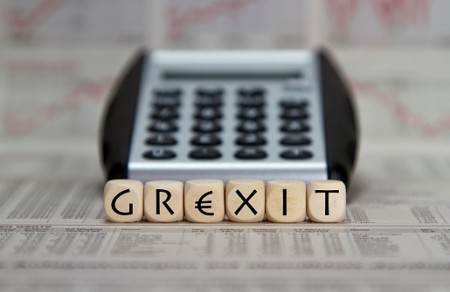Grexit: What is it? What would a Grexit mean?
The Australian sharemarket is down, the European markets have fallen – the possible and probable exit of Greece from the Eurozone will ensure that we are in for a rocky ride. So – what?s it all about? Here?s a very brief history.

What is the European Union?
In 1958, in the aftermath of the devastating humanitarian and economic fallout of World War 2, the European Union (EU) was created as a means to foster economic cooperation between previously warring neighbours. The original country members of the European Union (which was originally called the European Economic Community, were Belgium, Germany, France, Italy, Luxembourg and the Netherlands.
In the 1970?s Denmark, Ireland and the United Kingdom joined the European Union and in 1981 Greece became the 10th member of the EU. By the time the euro currency was introduced in 1999, 28 countries had become members of the EU.
What is the Euro?
In 1999, after decades of negotiation, the euro was created and in 2002 it took physical form, with the first notes and coins being issued. The Euro was designed to replace the local currencies of European Union countries – a single European currency and single central bank – as a means of ensuring economic cooperation between countries. After all, if there is one currency and one central bank, with a set value and a centrally-determined interest rate, economic competition will be fairer, right?
Not all the Eurozone countries committed – or were invited – to switch to the euro. Of the 28 members of the EU, 11 countries elected to make the euro their sole currency at the time of its launch. Currently, 17 countries have adopted the euro as their sole currency and these countries are known as the “Eurozone”.
The 17 nations of the Eurozone are
- Austria
- Belgium
- Cyprus
- Estonia
- Finland
- France
- Germany
- Greece
- Ireland
- Italy
- Luxembourg
- Malta
- Netherlands
- Portugal
- Slovakia
- Slovenia
- Spain
Problems with the Euro
While the theory of a common currency, single central bank and uniform monetary policy is to promote economic cohesion, it really works best in an expanding market. In times of downturn (recession), a single currency across many and varied countries leaves those countries without the security of their own central bank and without the competitive chip of being able to increase or decrease their currency value.
Thus when the GFC ripped holes in personal and government balance sheets across the globe, a number of Eurozone countries found themselves in a bad financial situation with few monetary policy strategies available except cutting costs. And while cutting costs is often necessary, it can also lead to economic contraction (that is, fewer people and businesses gainfully employed and therefore less tax revenue). It can become a vicious circle.
So what?s the Grexit?
That vicious circle leads us to the situation that Greece now finds itself in. In 2009, Greece disclosed that its deficit was significantly higher than previously acknowledged and Greece?s credit rating was downgraded. A lower credit rating means higher borrowing rates and fewer enthusiastic investors and by 2010 Greece requested an international bailout from the European Union, European Central Bank and International Monetary Fund (the Troika), to help it meet the interest repayments on its national debt. A €110 billion bailout was negotiated in return for austerity (cutting back costs) measures.
The €110 bailout was contingent on various austerity measures being introduced over a three year period and over the next three years Greece did – not without social unrest – introduce additional austerity measures. A side effect of these measures was the contraction of the Greek economy. This, combined with the social unrest and investor caution, meant that Greece?s credit rating continued its downward spiral. It also meant less government revenue and therefore less ability to remain financially viable.
Currently Greece is estimated to owe €340 Billion and the unemployment rate has increased from under 12% in 2010 to approximately 25% today. With no real likelihood of meeting ongoing debt repayments, Greece may decide that it would be better off to default, leave the Eurozone, revert to its own currency, own central bank and own policy-making freedom. That would be the Grexit.
How would the Grexit work?
That remains to be seen, but in all likelihood Greece would give up the euro and reintroduce the drachma. Having its own currency issued by its own central bank would allow Greece to keep itself domestically solvent.
The value of the drachma would fall against the Euro and there would likely be significant inflation (although with an unemployment rate of 25%, inflation might be somewhat contained). There would be no ability for Greece to raise finance on the international debt markets for many years.
Greece might nevertheless decide that, when faced with a choice of many years of centrally-imposed austerity or many years of self-imposed austerity, that the latter is a better option.
Stay tuned….
Try our Online Share Trading comparison tool to instantly compare Canstar expert rated options.






